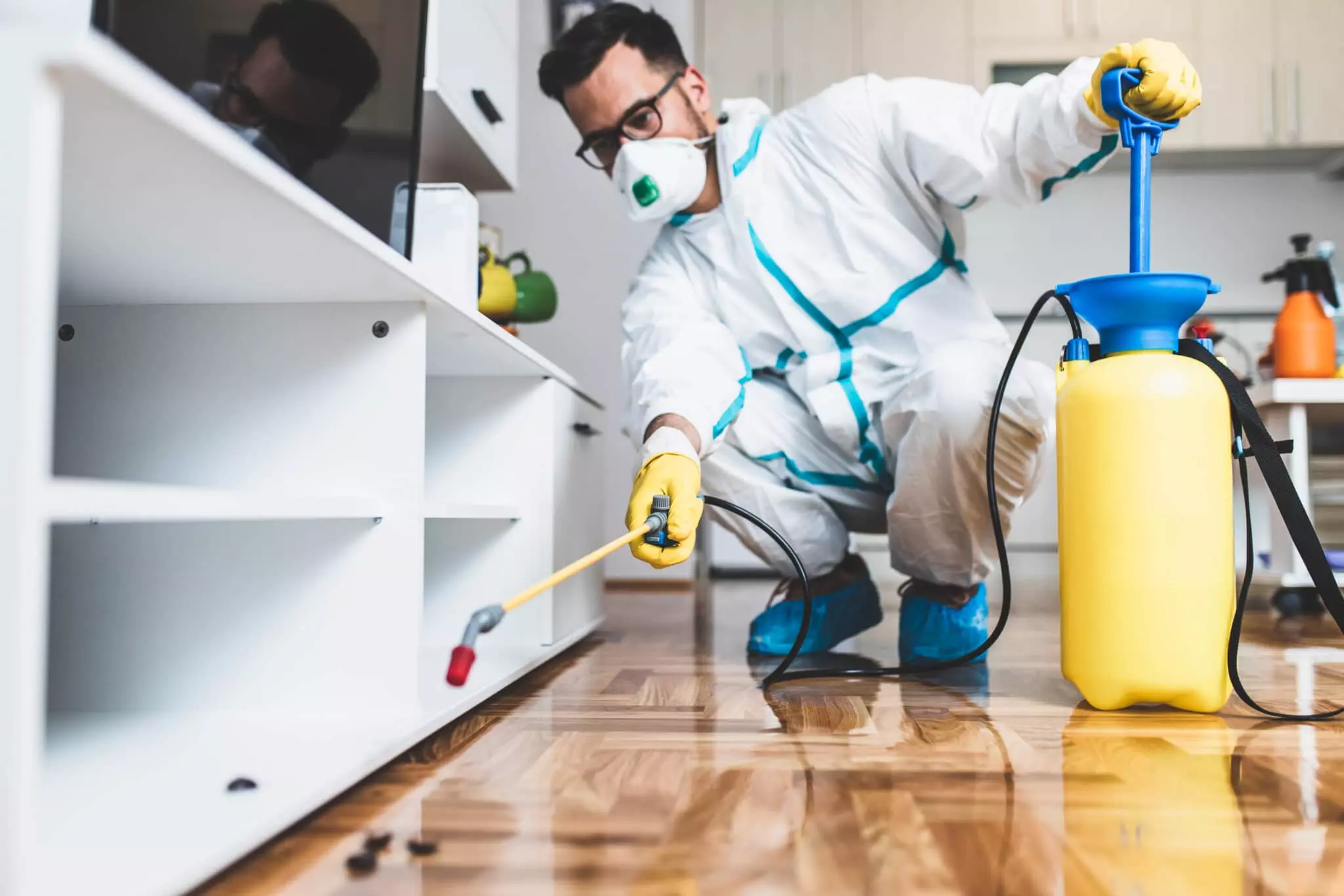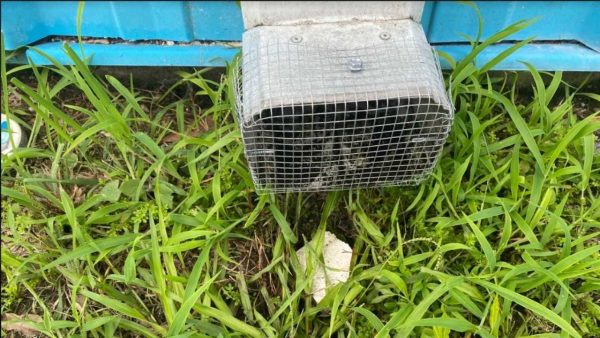Professional Wildlife Removal Services in Port Charlotte to Safely Remove Pests
Uncover the Relevance of Parasite Control in Preserving a Healthy Setting and Therapy Techniques

The Function of Pests in Ecological Communities
Parasites, commonly seen only as annoyances, play a multifaceted duty in environments that is vital for keeping environmental balance. They contribute significantly to different eco-friendly processes, consisting of pollination, nutrient cycling, and parasite control. Lots of insect varieties, such as bees and butterflies, are vital pollinators for a wide variety of plants, which in turn sustains biodiversity and food production.
Furthermore, bugs function as prey for various predators, creating a critical link in food webs. This interdependence makes sure the survival of numerous varieties and aids regulate populations within ecological communities (Termite treatment Port Charlotte). Decomposer bugs, such as specific beetles and fungis, are crucial in breaking down natural issue, hence improving dirt and assisting in vitamins and mineral recycling.
Alternatively, while pests can be useful, their overpopulation or invasion right into non-native settings might interrupt these environmental functions. This complexity underscores the significance of understanding pest dynamics, as reliable parasite monitoring approaches need to take into consideration both their ecological roles and potential influence on human tasks. Stabilizing pest existence while decreasing injury is vital for preserving the stability of communities and making certain farming efficiency.
Health Risks Linked With Insects
The presence of pests in numerous atmospheres extends past their ecological duties, as they likewise position substantial health and wellness risks to human beings and animals. Several insects, including rats, bugs, and bloodsuckers, are carriers of diseases that can have serious health ramifications. Rats are recognized to send hantavirus and leptospirosis, both of which can lead to serious respiratory and renal concerns, respectively.
Insects such as insects and ticks are well known for spreading vector-borne illness like jungle fever, dengue fever, and Lyme illness. These illnesses can result in high morbidity and death prices, particularly in susceptible populaces. In addition, pests like cockroaches and insects can worsen allergic reactions and bronchial asthma, contributing to breathing issues in people, specifically those with pre-existing problems.
In addition, the presence of insects can result in mental stress and anxiety and pain, influencing overall well-being. Contamination of food and surfaces by pest droppings and remains can result in foodborne health problems, highlighting the value of keeping hygienic problems. Recognizing the wellness threats linked with bugs is vital in identifying the requirement of effective pest management approaches to guard animal and human health.

Benefits of Efficient Parasite Control
Reliable pest control is important for preserving a healthy and balanced and secure environment, as it consistently reduces the many dangers connected with parasite invasions. Among the main advantages of efficient bug monitoring is the decrease of carcinogen. Parasites such as rats, cockroaches, and insects are vectors for diseases that can affect both pets and people. By regulating these populaces, the chance of illness transmission is dramatically reduced.
Furthermore, effective bug control safeguards residential property and frameworks from damages. Numerous parasites, like termites and carpenter ants, can create substantial structural damages that may call for expensive repair services. By proactively managing these problems, organizations and house owners can shield their financial investments.
Another considerable benefit is the renovation of overall high quality of life. A pest-free setting adds to mental health and reduces anxiety linked with problems. Reliable parasite control cultivates a more secure setting for pets and children, ensuring that homes remain refuges free from hazardous chemicals and disease-causing organisms.
Common Pest Control Techniques

In the realm of insect administration, various strategies are utilized to combat problems efficiently. These techniques can be generally categorized right into three major techniques: cultural, mechanical, and chemical controls.
Social control includes changing methods to reduce bug establishment, survival, and useful site recreation. This might include plant turning, proper hygiene, and habitat control, which jointly produce a setting less for pest proliferation.
Mechanical control utilizes physical approaches to remove pests (Termite treatment Port Charlotte). Techniques such as vacuums, barriers, and traps are frequently utilized to straight get rid of parasites from a location. This strategy is particularly effective for managing rodents and insects without using hazardous chemicals
Chemical control entails the application of chemicals to take care of parasites. These materials can be classified right into herbicides, insecticides, and fungicides, each targeting certain sorts of bugs. It is vital to make use of these chemicals deliberately, sticking to security guidelines and policies to reduce potential harm to non-target species and the atmosphere.
Each parasite control method has its advantages and constraints, and commonly, an integrated technique incorporating several methods produces the very best cause preserving a pest-free environment.
Lasting Insect Management Practices
Lasting insect management techniques include a range of approaches created to minimize ecological effect while efficiently controlling parasite populations. These techniques prioritize using eco-friendly approaches over chemical pesticides, thus reducing the danger of injury to non-target types, including beneficial bugs, wild animals, and people.
Integrated our website Parasite Administration (IPM) is a keystone of sustainable methods, combining biological, social, mechanical, and chemical tactics to handle pests. For circumstances, biological control includes presenting natural killers or parasites to reduce parasite populaces. Social practices, such as crop rotation and polyculture, interfere with pest life cycles and enhance ecological community resilience.
Mechanical techniques, such as catches or obstacles, can successfully protect against pest gain access to without chemical treatment. In addition, safe termite control maintaining healthy ecological communities via proper soil administration, plant health and wellness, and biodiversity can normally minimize bug concerns.
Education and learning and awareness are important elements, equipping neighborhoods and people to acknowledge bug dangers early and apply safety nets. Termite treatment Port Charlotte. By promoting an alternative method that balances insect control with environmental stability, sustainable insect management practices not just secure frameworks and plants however additionally add to a healthier atmosphere for future generations
Verdict

Understanding the health threats linked with pests is vital in identifying the necessity of reliable pest monitoring methods to protect animal and human health and wellness.
Effective parasite control is necessary for maintaining a secure and healthy setting, as it regularly mitigates the many risks connected with pest problems.Integrated Pest Monitoring (IPM) is a cornerstone of lasting techniques, integrating organic, cultural, mechanical, and chemical techniques to manage bugs. By understanding the duty of pests, recognizing affiliated health and wellness threats, and employing diverse therapy techniques, a sustainable technique to pest monitoring can be achieved. Integrated Bug Management (IPM) stresses a holistic method that minimizes harm to beneficial organisms while successfully controlling insect populaces.